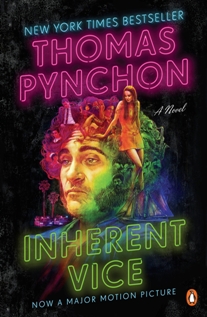
After last week, filled with the annual Killer Nashville conference, it’s a pleasure to get back to blogging with a guest post by popular crime author Marilyn Meredith! She is the author of over 40 published books, including the Deputy Tempe Crabtree mystery series and, writing as F. M. Meredith, the Rocky Bluff PD series.
Despite her long list of successes, marketing her latest book—The Trash Harem—posed new challenges in the era of Covid. Fans of her character, Deputy Tempe Crabtree, would likely be interested in whether she could actually retire from the crime-solving business. But how to get the word out? Here’s what Marilyn says about that:
The Book is Done, What’s Next?
First the basics: The Trash Harem is published and available on Kindle and as a paperback. But, promoting a new book is very different in the Age of Covid. Two years ago the marketing job was much easier! Pre-Covid, what I would’ve set up would have included:
- Talks at libraries. Our library (in northern California) burned to the ground and has not been rebuilt. Other nearby libraries are slowly opening but not ready for any events. In the past, several libraries held book fairs, others set up panels for a group of authors. All on hold.
- Other presentations: For example, I belong to two chapters of Sisters in Crime, but neither has resumed in-person gatherings. I belong to another writers’ group that meets in a library. That’s out too, for now. Other writers’ groups I where I usually would give a presentation about a new book also aren’t doing in-person events yet.
Overcoming these challenges?
Not having these preferred methods of getting the word out, I’m planning other kinds of book events that involve signings in local communities. In the past I’ve set up book signings in local coffee shops and I may still do that. Our art gallery has remained open through the pandemic and I’ve done two events there. I may see about another signing at the gallery with this latest book. I
I attended the Public Safety Writers Associations annual summer conference—the first one they’ve had since the pandemic. https://policewriter.com/ This has always been my favorite conference for several reasons. It’s small enough to be manageable, and I can meet everyone. Lots of great information is shared, and I often get ideas for new plots. And there is a book store where I can sell my books!
The small community where I live had an annual two-day Apple Festival until the pandemic hit. This year they are doing a scaled down, one-day version, and I’ve signed up to have my books for sale.
Non-in-person events also make sense right now. I’ve done lots of promotion on the Internet, including a blog tour and this is one of my last stops. I’ve always enjoyed doing these tours. (And we bloggers enjoy having Marilyn as a guest!)
Feedback? Yours is welcome!
What I’d like to know from readers is, are you ready to attend book signings and book and craft fairs again? And from writers, what kinds of promotion are you doing these days?
Deputy Tempe Crabtree in a Nutshell
Deputy Tempe Crabtree has retired from her job in Bear Creek in central California. Friends that have moved south ask her to visit them in Temecula, where they are now living in a retirement community. Tempe learns the husband, Jonathan, is a suspect in what might be a murder case. The retirement community includes many interesting characters, any one of whom might have had a better motive for murder than did Jonathan. Still . . . Fans of the detective fiction of Earle Stanley Gardner as well as the Pechanga Old Oak (look it up!) will find something to like here. Oh, and what’s a trash harem? You’ll have to read the book to find out!
Order The Trash Harem here from amazon.
Or here from your local indie bookstore.






 When this film (
When this film (
